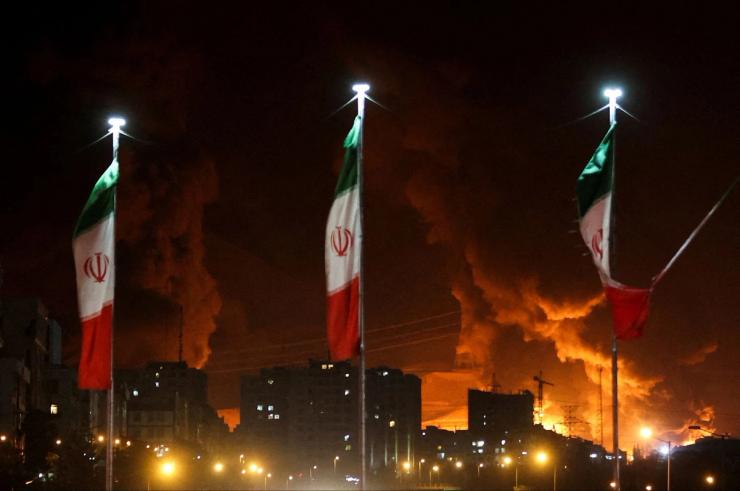“It’s a pity both sides can’t lose.” This quote, widely attributed to the late Henry Kissinger during the Iran-Iraq war (1980–1988), resurfaced in my mind as direct war broke out between Israel and Iran. While it may seem to outsiders that this is the Gulf’s position, the view here is that escalation puts the entire region at risk. Unless the hostilities end soon, everyone loses.
Both sides have few friends in the region. Israel is at its lowest standing among Arab nations due to its continued occupation of Palestinian land and what many leaders consider its genocidal prosecution of the war in Gaza, which leaves little room for diplomatic engagement beyond condemnation.
Iran, on the other hand, is seen as a rogue state, destabilizing the Middle East with proxy wars and militias. There has been a shift, however, since the Beijing-brokered treaty in March 2023 with Saudi Arabia. The kingdom has witnessed a measured de-escalation with Tehran. While Iran’s past actions have done little to earn trust, some believed that there’s an opportunity to contain further regional volatility.
This hope is now under threat.
There’s a growing suspicion that Israel’s timing to attack Iran is deliberate, driven by ulterior motives rather than immediate security concerns. Rebuilding bombed facilities will only cost Tehran a billion or two dollars and set back the program a few months or years, whereas a firm deal with the Trump administration could have achieved lasting guarantees.
And with global outrage over Gaza reaching a boiling point, many fear this escalation serves as a distraction — an attempt to shift the world’s attention from its ongoing crimes against Palestinians. The strikes occurred just days before Saudi Arabia and France were set to lead an international coalition advocating for a two-state solution. If the timing is coincidental, it is remarkably convenient for Israel. Could Iran have averted all this by acting faster? Sure, but let us face the bitter facts here: The longer and more complicated Middle Eastern conflicts get, the longer Israeli Prime Minister Benjamin Netenyahu remains relevant, in power, and avoids accountability for corruption and other charges.
Saudi Arabia and most Gulf and Arab nations have condemned Israel’s actions, recognizing the risk of being dragged deeper into a crisis that threatens to destabilize the region further. By crossing multiple red lines — violating Iran’s sovereignty, expanding extrajudicial killings, and striking nuclear, energy, and civilian infrastructure — Israel has drawn widespread ire.
The killing of senior Iranian figures leaves Tehran with fewer credible negotiators to engage in diplomacy. This complicates efforts to find off-ramps. Iran has responded with a barrage of missile strikes on Israel, causing significant destruction and loss of life. Its next options, particularly if the regime feels cornered without a way out, could cause escalations that quickly spiral.
For the Gulf, which sits between the two warring countries, the consequences are evident. Everything from confronting radioactive contamination to the closure of the Strait of Hormuz to the hefty economic consequences of a prolonged war are on the table.
But the country with the most to lose may be the United States. President Donald Trump has long pledged to get the country out of “endless wars.” This conflict risks sucking the US military in, sending oil prices over $100 a barrel, and dragging the US and global economy into recession.
Faisal J. Abbas is an award-winning journalist and Editor-in-Chief of Arab News.


